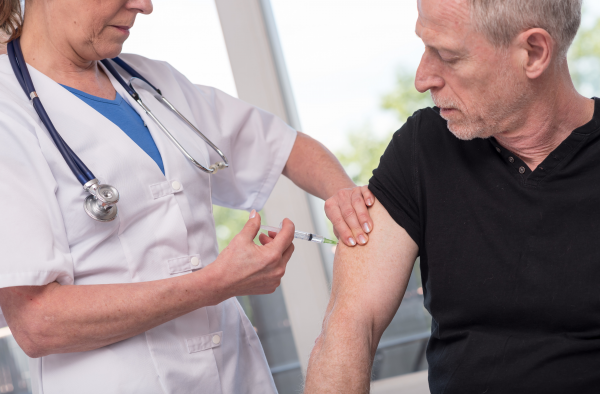Lung Foundation Australia’s has issued an "urgent plea" for all at-risk adults to vaccinate against pneumococcal pneumonia this Pneumonia Awareness Week.
In a new article published in MJA Insight, it has been revealed that one-in-ten Australians aged over 65 who are hospitalised with pneumonia die from the "killer lung infection”.
The article has been authored by renowned infectious diseases paediatrician and immunisation coalition chairperson, Professor Robert Booy.
According to Professor Booy, most people carry the pneumococcal pneumonia-causing bacteria in their throat, which can be complicated by pneumonia due to a weakened immune system or viral infection.
“All it takes is a simple lung or flu infection, particularly in those at-risk (people aged over 65 and those with medical and lifestyle risk factors), to wake the ‘sleeping dragon’ and develop into a life-threatening case of pneumonia.
“We are experiencing a big flu season, with more than 44,200 already confirmed cases of the virus this year,” said Professor Booy.
“Flu often develops into pneumonia. Although older Australians are increasingly having an annual flu shot, only one-in-two are vaccinating against pneumococcal pneumonia, leaving them vulnerable to the killer lung infection.”
The pneumococcal vaccine is free through the National Immunisation Program (NIP) Schedule to those at highest risk of the infection, including over 65s, infants, Aboriginal and Torres Strait Islander people, those with impaired immunity, chronic tobacco smokers and people with chronic medical illnesses, such as heart, lung, kidney and liver disease, and diabetes.
Lung Foundation Australia CEO, Mark Brooke, said this year Pneumonia Awareness Week aims to 'ignite a conversation'about the dangers of pneumonia.
“Pneumonia is a leading cause of hospitalisation in Australia and vaccination is your best defence against contracting pneumococcal pneumonia. It’s also very important that people practice good hygiene, so washing their hands, maintaining clean surfaces, and avoiding others, including staying away from workplaces, if they feel symptomatic. All of those things are incredibly important, but it is absolutely critical to remember that pneumococcal pneumonia is vaccine preventable.
“Pneumonia symptoms include fever, cough or difficulty breathing and they often come on quite rapidly or may develop over one to three days. If you notice any of these symptoms, it is important that you see your doctor straight away,” said Mr Brooke.
